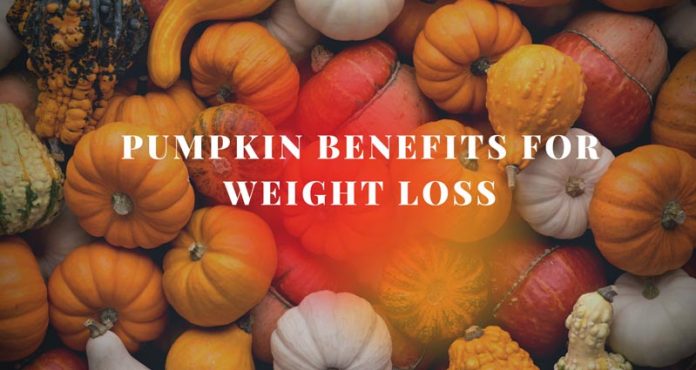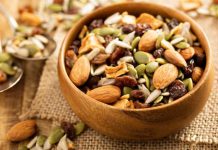It may come to you as a surprise that a pumpkin is a fruit rather than a vegetable. Yes, it is because its structure is similar to that of seed-bearing flowering plants. And anything that starts from a flower is called a fruit. Pumpkin is a plump, nutritious orange fruit.
So, a pumpkin is round with smooth, slightly ribbed skin and is often deep yellow to orange in coloration.
It is a versatile, frost-resistant vegetable cooked or eaten raw year-round. Its thick shell contains seeds and pulp that, too, have benefits.
As per a study done at Birjand University of Medical Sciences, Birjand, Iran, it was found that pumpkin dies reduced triglycerides and low-density lipoprotein for the group on pumpkin diet. The study clearly shows the benefits of pumpkin on the obese, where it reduces the risk of cardiovascular disease.
Nutritional Value of Pumpkin 100g
- Water: 91.6g
- Energy: 26kcal
- Protein: 1g
- Fibre: 0.5g
- Calcium: 21g
- Vitamin C: 9mg
- Magnesium: 12mg
Detailed look at Nutrient found in 1 cup (245g) of cooked pumpkin
| Nutrient | Amount | % Daily Value (DV) |
|---|---|---|
| Calories | 49 | 2% |
| Carbohydrates | 12 g | 4% |
| Fiber | 3 g | 12% |
| Protein | 2 g | 4% |
| Vitamin A | 245% DV | 245% |
| Vitamin C | 19% DV | 19% |
| Potassium | 16% DV | 16% |
| Copper | 11% DV | 11% |
| Manganese | 11% DV | 11% |
| Vitamin B2 (Riboflavin) | 11% DV | 11% |
| Vitamin E | 10% DV | 10% |
| Iron | 8% DV | 8% |
| Phosphorus | 6% DV | 6% |
| Magnesium | 5% DV | 5% |
Percent Daily Value (DV) is based on 2,000 calories per day diet.
Advantages of Pumpkin for Weight Loss
1. Low on Calories
Pumpkin is a nutrient-dense food since it is low in calories while high in nutrients. This fruit contains around 94% water and fewer than 50 calories per cup (245 grams). As a result, pumpkin is a weight-loss-friendly meal since it may be consumed in greater quantities than other carb sources.
2. High on Fibre
According to the USDA, 100 g of pumpkin has only 0.5 g of fibre. This indicates that one cup of pumpkin has around 3 mg of fibre and just 49 calories. Fibre, on the other hand, is essential for digestive health, which not only aids in weight reduction but also reduces hunger sensations.
3. Great Post-Workout Food
Pumpkin has 340 mg of potassium per 100 g, making it an excellent post-workout snack. It aids in muscle rehabilitation, electrolyte regulation, and nerve function.
Eating potassium-rich foods like pumpkin after the workout helps muscle recovery and balance electrolytes. Eating 100g of pumpkin provides 340mg of potassium, according to the USDA. It also helps in preventing muscle cramps and accelerates muscle recovery. As pumpkin is high in water content, it helps replace the fluids lost through sweat. In addition, it is also packed with Vitamin A, Vitamin C, and fiber, contributing to overall health.
4. Improves Mood And Combats Stress
Pumpkin has tryptophan, an amino acid that is a natural mood enhancer and stress reliever.
As a result, maintaining a positive attitude is critical to staying on track with your weight reduction and fitness goals.
As per NIH, in a study, it was found that pumpkin seed extracts have antidepressant properties. Therefore, it was suggested for further research to replace the present antidepressants, which have several side effects.
5. Improves Immunity
Pumpkin is an immune booster due to essential vitamin C and beta carotene. As a result, having a robust immune system is critical for losing weight quickly and safely.
Pumpkin seeds have sound immunomodulatory effects where they can be used to boost the immune system for protection against infectious diseases. In India, Immunity booster bars were successfully created for athletes with good results. The energy bars are comprised of sunflower, pumpkin, and flax seeds.
6. Pumpkin seeds and weight loss
They may appear small, but they are incredibly dense and heavy foods that help you stay full longer. They are also heavy in fibre, which takes your body longer to digest, leaving you full and preventing cravings.
- Pumpkin seeds are a good source of dietary fiber.
- An ounce of roasted pumpkin seeds provides approximately 8.5 grams of protein.
- Pumpkin seeds contain healthy fats like monounsaturated and polyunsaturated fats.
- These seeds have a low glycemic index, which controls appetite and delays hunger cues.
- They are high in magnesium, iron, zinc, and antioxidants, contributing to overall health.
- They can be eaten raw or roasted as a snack, sprinkled over salads, or added to baked goods.
7. Hydrating
Pumpkin has a high water content(94% water), contributing to a feeling of fullness and aiding in hydration. The high water content in pumpkin also helps keep you hydrated, which helps digestion and body temperature. It also helps in weight management as people mistake thirst for hunger. The fiber content (2.7 grams per cup) absorbs water, which slows digestion and helps control appetite.
In conclusion
Pumpkin is highly nutritious since it contains vitamins, minerals, and antioxidants. Furthermore, its low-calorie level makes it an ideal weight-loss snack. Its minerals and antioxidants may strengthen your immune system, protect your vision, reduce your chance of some malignancies, and support heart and skin health. Pumpkin is a versatile fruit used in sweet and savory recipes. To gain the health advantages of pumpkin, try including it in your diet immediately.
Pumpkin for Weight Loss FAQs
1. How many pumpkin seeds should I eat in a day to lose weight?
For each person, the recommended pumpkin seeds dosage is different. The number of pumpkin seeds you consume will depend on your weight and current metabolism level.
The American Heart Association suggests a quarter cup of pumpkin seeds daily as part of a balanced diet, roughly 30 g. This quantity will provide enough protein, healthy fats, fibre, zinc, selenium, magnesium, and other essential minerals.
2. How does pumpkin soup help you lose weight?
Pumpkins and pumpkin soups are high in vitamins and minerals. Because it is low in calories, it helps in weight loss while keeping you fuller for longer.
3. Who shouldn’t eat pumpkin?
- People who have digestive problems. Pumpkin can cause gas and bloating if you don’t digest it well. People with irritable bowel syndrome (IBS) may want to avoid pumpkin because it can lead to other symptoms if you have IBS.
- People with kidney stones or rheumatoid arthritis. Eating pumpkin seeds may increase your risk for these conditions because they contain oxalates, which bind to calcium and make it harder for your body to absorb.
- Pregnant or breastfeeding women should limit their intake of fresh pumpkins due to their sugar content.
- Did you know that pumpkin seeds may cause allergies in many people? These seeds can cause allergic responses such as throat discomfort, coughing, and even headaches.
4. Is pumpkin high in sugar?
Pumpkins have been examined and confirmed to be a safe and beneficial complement to diabetics’ diets. It not only helps to keep blood sugar levels under control, but it can also help with general physical well-being.
Despite this, eating a large amount of pumpkin at once can be harmful and unsafe to blood sugar levels, causing a significant surge in the body.









